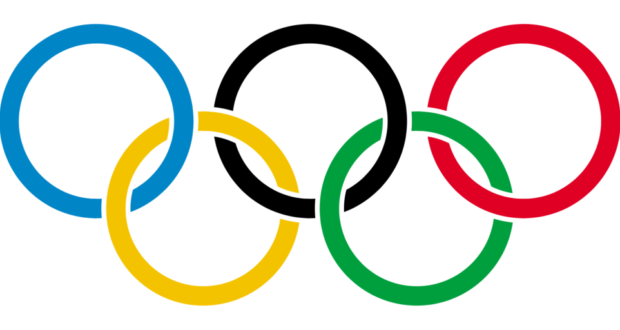The 2018 Winter Olympics aren’t just a showcase for the world’s top athletes. Some of the world’s largest brands paid millions to promote its products on a global stage in Pyeongchang, South Korea.
The International Olympic Committee has top-level sponsorship deals in place with 13 corporations. Each “Worldwide Olympic Partner” pays roughly $100 million per four-year Olympic cycle, according to Reuters, though some estimates place the average cost even higher. Some sponsors pay more than others.
In exchange, sponsors receive top billing and the chance to showcase their services to spectators on the ground at Olympic events and on television, where broadcasts drew an average of more than 21 million viewers in primetime during the 2014 Winter Games in Sochi, Russia.
For example, Intel, which signed a sponsorship deal with the IOC in 2017, said it would provide 5G wireless technology, drones, artificial intelligence platforms and other gear for use during Olympic events this year.
Timo Lumme, managing director of the IOC’s Television and Marketing Services, told Reuters last year that presence of a record 13 top-line Olympic sponsors was proof that companies receive “tangible returns” for their multimillion-dollar investments.
The 13 top sponsors of the 2018 Winter Olympics are Coca-Cola, Alibaba Group, Atos, Bridgestone, Dow, General Electric, Intel, Omega, Panasonic, Procter & Gamble, Samsung, Toyota and Visa. Lower-tier sponsors of this year’s games include The North Face, Hyundai and LG.
The IOC isn’t the only beneficiary from the swarm of companies aiming to advertise during the Olympics. NBC executive Dan Lovinger said the network expects ad sales to surpass the final tally from the 2014 games, when the total advertising haul topped $800 million.
3 Big Trends From This Year’s Super Bowl
Three compelling trends emerged from this year’s crop of Super Bowl ads, according to Adweek.
1. Multiple spots
Given the price tag attached to Super Bowl ads, the decision to pony up more than $5 million for 30-seconds of your attention might seem surprising but several brands were willing to do so. Tide, Budweiser, Michelob Ultra, Toyota and Jeep were some of the brands that released multiple ads during the game.
2. Humor
Amazon, NFL, Tourism Australia, Bud Light and the Mountain Dew versus Doritos lip-sync battle were all among the brands that aimed to make people laugh during the Super Bowl.
3. Altruistic ads
T-Mobile, Verizon and Budweiser used the Super Bowl to make a statement about a larger issue: equality, water or disaster relief efforts.
Socially Conscious Brands Appeal to Consumers
Social media management company Sprout Social has released its “Championing Change in the Age of Social Media” report.
It surveyed over 1,000 people in the U.S. to discover how they wanted brands to communicate their positions, and engage in conversations on political and social issues.
The report finds two-thirds of consumers say that it is important for brands to take public stands on social and political issues like immigration, civil rights and race relations. Over half are happy for this to happen across social media channels.
It uncovered that a third more liberals (78 percent) want brands to voice their company’s stances on socio-political issues than do conservatives (52 percent) – no matter where their interests fall.
Brands’ voices appear most credible when an issue directly impacts their customers (47 percent), employees (40 percent), or business operations (31 percent) according to the report.
Consumers’ most common emotional reactions to brands taking a stand on social issues tended to be positive. The report showed that people will spread the word when they agree, but will not take action when they disagree with the stand.
If consumers’ personal beliefs align with what brands are saying, 28 percent will publicly praise a company. However, when individuals disagree with a brand’s stance, only 20 percent will publicly criticize the company.
Brands can’t change minds of consumers – but they can effect change. Two-thirds (66 percent) of respondents say posts from brands rarely, or never influence their opinions on social issues.
Respondents believe that brands are more effective on social media when they announce donations to specific causes (39 percent), and encourage followers to take specific steps to support causes (37 percent), such as participating in events or making their own donations.
Interestingly, 78 percent of respondents who self-identify as liberal want brands to take a stand, while about half (52 percent) of respondents who self-identify as conservative feel the same way.
Golden Mic | Olympics Is the Great Unifier
The Winter Olympics got underway in Pyeongchang, and snowboarder Red Gerard became the first American to win gold. The 17-year-old, who took the top spot in the men’s slopestyle contest, is the youngest Olympic snowboarding gold medalist ever.
Compatriot Jamie Anderson defended her title in the women’s snowboard slopestyle event, overcoming blustery conditions to give the U.S. its second gold medal.
North Korea’s surprise invitation to South Korea for a summit in Pyongyang was the big political news of the weekend. The development came hours after delegations from the two Koreas marched into the Opening Ceremony together under a unified flag. For its historic Olympic debut, the unified Korean women’s ice-hockey team lost 8-0 to Switzerland before a loud and partisan crowd.
Perhaps no other world gathering – or sport – is as unifying as the Olympic games. For a moment, the world, conflicting nations and desperate cultures came together in unity to compete in peace. This is a true Golden Mic moment!
Each week, The Spin Cycle will bestow a Golden Mic Award to the person, group or company in the court of public opinion that best exemplifies the tenets of solid PR, marketing and advertising – and those who don’t. Stay tuned – and step-up to the mic! And remember … Amplify Your Brand!

